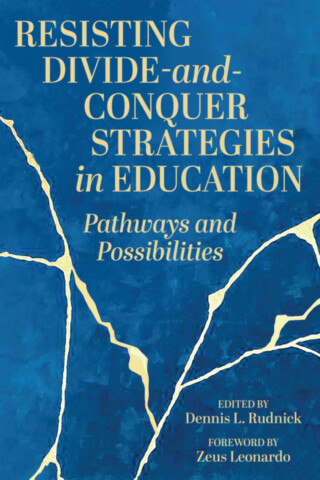Zeus Leonardo
Dr. Zeus Leonardo is Professor and past Associate Dean (2018–2021) of Education, and Faculty of the Critical Theory Designated Emphasis at the University of California, Berkeley. He is a Fellow of the American Educational Research Association (AERA) and a past Vice President of AERA’s Division G, Social Context of Education (2017–2020). He has received recognition from several organizations, including the Derrick Bell Legacy Award from the Critical Race Studies in Education Association and the Scholars of Color Distinguished Career Contribution Award from AERA. Leonardo has authored or edited ten books, including Race Frameworks; the 2nd edition of Education and Racism (with Norton Grubb); Race, Whiteness and Education; and his most recent book, Edward Said and Education. Throughout his career, his intellectual engagements have moved across the works of Paulo Freire, Louis Althusser, Charles Mills, Edward Said, and Frantz Fanon. In many publications, he has critically analyzed race, class, and gender stratification in education; democratic schooling; and diversity in multiple forms, including epistemological and ideological difference. His work in ideology critique is interdisciplinary and brings together insights on ideology from sociology, classical and contemporary philosophy, and cultural studies. In addition to invitations in the U.S., Professor Leonardo has delivered keynotes in England, Sweden, Canada, and Australia. He is at work on his next book, on Fanonian Studies in Education. He is a member of the American National Academy of Education.
Books by Zeus Leonardo:

2025 SPE Outstanding Book Award Winner
Resisting Divide-and-Conquer Strategies in Education: Pathways and Possibilities examines the ways in which divide-and-conquer strategies operate in the American public education system. In U.S. education, these mechanisms are endemic and enduring, if not always evident. Coordinated, strategic, well-funded, politically-viable campaigns continue to stoke fear, othering, villainization, and dehumanization of minoritized groups, pushing false and problematic narratives that inhibit progress toward social justice. Weaponizing hegemony and leveraging misinformation, reactionary agents and institutions seek to suppress truth, block access to democratic participation, and dismantle education and other sites of emancipatory possibility through the strength of divide-and-conquer mechanisms, pitting relatively disempowered groups against one another to preserve the dominant social order.
Readers of this book will encounter conceptual and critical interrogations of divide and conquer. The text will help facilitate inquiry and engagement into how divide and conquer operates and how it can be resisted. It looks at the history of the phenomenon, as well as its current state, especially as it relates to education. What insights and lessons might we learn from a focused examination of divide and conquer, and what strategies of resistance are both possible and necessary for challenging it?
This text is designed for undergraduate and graduate classrooms in education and social sciences. Part I, Ideology and Sociopolitical Contexts, dissects how divide-and-conquer mechanisms operate ideologically and sociopolitically. Part II, Policies and Practices, focuses on how divide-and-conquer mechanisms shape exclusionary U.S. educational policies and practices. Part III, Resistance and Liberation, documents efforts of liberatory communicative, curricular, and pedagogical possibilities. Each chapter concludes with a set of critical questions for reflection and engagement.
Perfect for courses such as: Foundations of Education; Schools and Society; Schooling in America; History of Education; Philosophy of Education; Sociology of Education; Social Studies; Critical Theory in Education
Library E-Books
We are signed up with aggregators who resell networkable e-book editions of our titles to academic libraries. These editions, priced at par with simultaneous hardcover editions of our titles, are not available direct from Stylus.
These aggregators offer a variety of plans to libraries, such as simultaneous access by multiple library patrons, and access to portions of titles at a fraction of list price under what is commonly referred to as a "patron-driven demand" model.
E-books are now distributed via VitalSource
VitalSource offer a more seamless way to access the ebook, and add some great new features including text-to-voice. You own your ebook for life, it is simply hosted on the vendor website, working much like Kindle and Nook. Click here to see more detailed information on this process.



